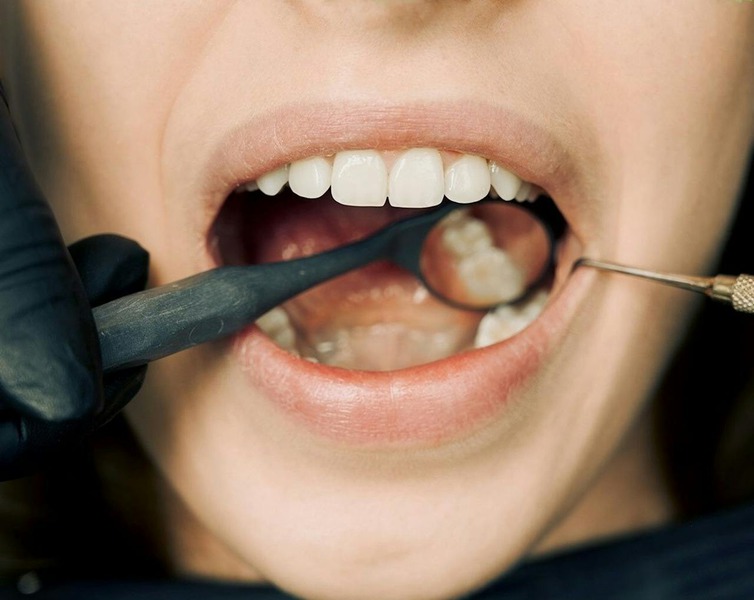Tooth sensitivity can catch you off guard, turning the simple joy of a delicious ice-cream or a soothing hot chocolate into a source of pain. If your teeth are sensitive to temperature, sweetness, or even brushing, you’re not alone in your discomfort. But there’s light at the end of the tunnel; there are various steps you can take to alleviate that pesky tooth sensitivity for good.
Tooth Sensitivity
Before diving into remedies, it’s critical to know what we’re dealing with. Tooth sensitivity, or ‘dentin hypersensitivity’, arises when the protective enamel of the tooth wears away, exposing the softer inner dentin. This exposes the nerve endings, causing discomfort when they come in contact with triggers like cold, heat, or acidity. But what can you do? Here’s how you can start to say goodbye to tooth sensitivity.
Recommended Home Practices
Adopting the correct brushing technique is crucial to prevent further enamel damage. Using a soft-bristled toothbrush and gentle, circular motions can help avoid aggressive wear on the enamel. And remember, over-brushing can be just as bad as not brushing enough!
-
Use fluoride toothpaste designed for sensitive teeth. These formulations help to strengthen enamel and reduce pain transmission.
-
Avoid acidic foods and drinks which can exacerbate enamel erosion. If you do indulge, wait at least 30 minutes before brushing.
Keeping up with your oral hygiene routine is fundamental in the fight against sensitivity. Regular flossing and the use of fluoride mouthwashes can further protect your teeth and reduce sensitivity.
There’s a variety of over-the-counter desensitizing products available. Ranging from special kinds of toothpaste to mouthwashes, these can build cumulative protection against sensitivity when used regularly.
Professional Dental Treatments
If home remedies for tooth sensitivity aren’t providing the relief you need, it may be time to consult a dental professional. They can offer a variety of in-office treatments designed to alleviate discomfort and protect your teeth.
Fluoride Gels and Desensitizing Agents
One common professional treatment is the application of fluoride gels.
-
Fluoride treatments help remineralize the enamel, making it stronger and more resistant to sensitivity triggers.
-
These gels are typically applied in the dental office and can provide immediate benefits.
In addition to fluoride gels, dentists may use desensitizing agents that are directly applied to sensitive areas of the teeth.
-
These agents work by blocking the nerve endings in the exposed dentin, reducing sensitivity and discomfort.
-
Regularly scheduled treatments can enhance long-term sensitivity management.
Dental Bonding and Sealants
For more significant issues associated with tooth sensitivity, dental bonding or sealants may be recommended.
-
Dental Bonding: This treatment involves applying a tooth-colored resin to cover exposed dentin, which helps shield sensitive areas from triggers.
-
Sealants: Dentists may also apply sealants to cover exposed root surfaces. This provides a durable barrier between the nerve and external stimuli, offering significant relief from sensitivity.
Both bonding and sealants can be effective in managing sensitivity and providing long-lasting protection.
Consulting Your Dentist for the Best Solution
In conclusion, if home remedies are not effective, professional dental treatments are an excellent option for addressing tooth sensitivity.
-
The application of fluoride gels and desensitizing agents can provide immediate relief and strengthen your teeth.
-
For deeper issues, treatments like dental bonding and sealants can offer protection and comfort by covering exposed areas.
Consulting with your dentist allows you to explore the best solutions tailored to your specific needs. By taking these steps, you can work toward reducing sensitivity and enjoying a more comfortable dental experience. Regular visits to your dentist will ensure the health of your teeth and help maintain your oral hygiene.
Alternative Dental Procedures
Gum Grafting
If tooth sensitivity is due to receding gums, a gum graft can restore gum tissue and protect your roots from exposure.
Root Canal Therapy
In cases of severe sensitivity that doesn’t respond to other treatments, a root canal might be necessary to treat problems in the dental pulp.
Implants
For those who have lost teeth due to extreme sensitivity or decay, dental implants Pflugerville TX communities provide could be an effective route for restoration. Implants offer a sturdy, permanent solution and can restore functionality without the concern of sensitivity.
Long-Term Management
Alleviating tooth sensitivity often requires long-term management, including monitoring your diet and oral hygiene habits. Incorporating healthy choices and protecting your enamel can prevent further damage and keep sensitivity at bay.
Teeth that have suffered from significant enamel loss might benefit from solutions like dental veneers. These custom-made shells adhere to the teeth, providing protection and a renewed appearance. While not a first-line treatment for sensitivity, they can address underlying enamel wear and offer a long-term solution.
Finding a Trusted Dental Professional
To effectively manage tooth sensitivity, it’s essential to have a trusted dental care provider on your side. Searching for a dentist near Pflugerville will lead you to professionals who can tailor treatments to your specific needs, ensuring consistent support and expert guidance.
Closing Remarks
Addressing tooth sensitivity is about identifying the cause and taking a targeted approach to treatment. From at-home care to professional procedures, the variety of available options means that you don’t have to live with discomfort.
Whether it’s adjusting your oral care routine or considering advanced treatments like dental implants or veneers, seeking the assistance of a dental professional is a sure step towards enjoying your favorite meals again without the wince of sensitivity. Continue to brush gently, cut down on acid, and embrace the solutions that modern dentistry offers. With the right care, sensitive teeth can become a thing of the past.


